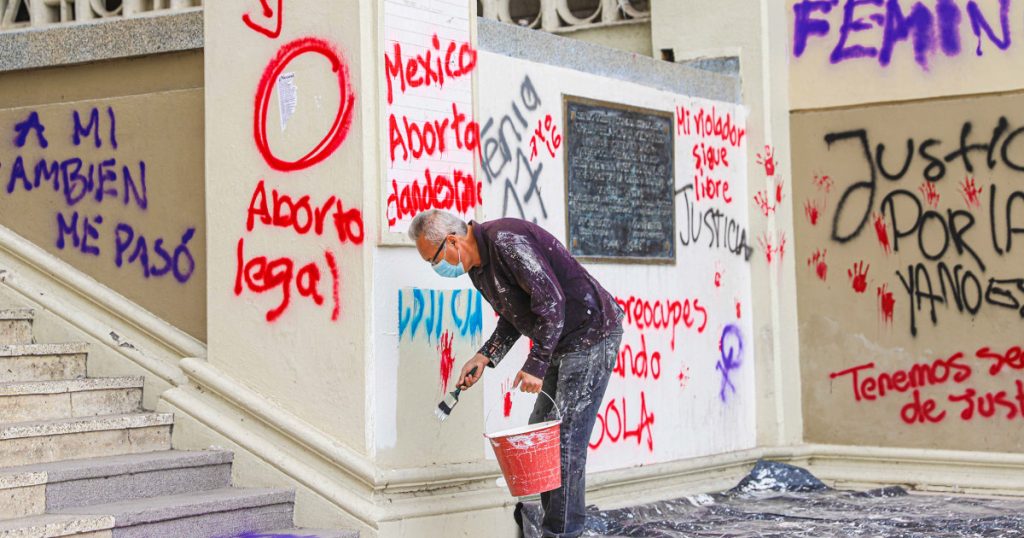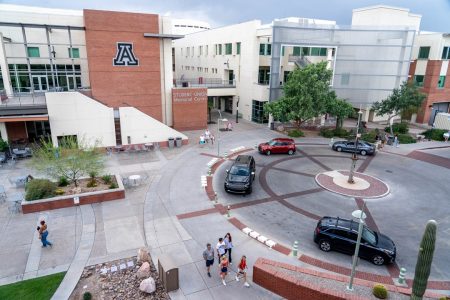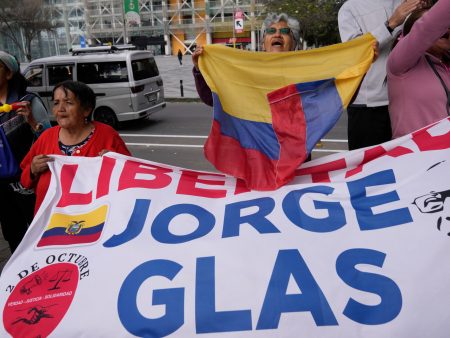The abortion rights nonprofit Pro-Choice Arizona’s executive director Eloisa Lopez emphasizes that communities suffering the most from restrictive abortion laws are those including undocumented immigrants, rural residents with limited resources, those facing language barriers, low-income individuals, and others with intersecting issues. Many U.S. women are seeking the abortive drug misoprostol in Mexico due to its availability over-the-counter to treat ulcers, despite some pharmacies overcharging and providing incorrect information. Activists in Mexican border states are receiving an influx of American women seeking care following Texas’ six-week abortion ban, with only one state, Coahuila, allowing first-trimester abortions. Vanessa Jiménez leads the Nuevo León-based organization Necesito Abortar México, which aids women with medication-induced abortions due to the strict abortion restrictions in the region. They are assisting over 1,000 women per month, with 30% of those coming from the U.S., including migrant women and those who cannot travel to other states where abortion is legal.
Jiménez founded La Abortería, a space in her home offering medical abortion assistance to women who lack access to clinics. In Arizona, Lopez anticipates women affected by the state’s potential ban seeking abortions in neighboring states or Mexico. Arizona organizers have collected enough signatures to introduce a constitutional amendment allowing voters to determine if abortion should be considered a fundamental right in the state. The movement has gained substantial support, particularly in rural communities, where the idea of government intervention in personal decisions is unpopular. The focus is on giving individuals the freedom to make choices that align with their beliefs and family circumstances. The goal is to protect personal freedoms and remove government interference from private medical decisions.
Women in Sonora, Mexico, are facing challenges in accessing misoprostol due to pharmacies requiring prescriptions or selling it at inflated prices. Andrea Sánchez of Aborto Seguro Sonora highlights the exploitation of women’s vulnerability in such situations, with some receiving inadequate dosages for a successful abortion. In response to Texas’ abortion ban, activists in Mexican border states have seen an increase in American women seeking services, prompting organizations like Nuevo León’s Necesito Abortar México to offer guidance on medication-induced abortions. The World Health Organization guidelines are a key resource in this endeavor, along with a focus on providing care to marginalized populations, including migrants who cannot access services in Mexico or the U.S.
The cross-border collaboration between U.S. and Mexican activists is critical in ensuring access to safe abortion care for women facing restrictive laws. Mexican activists like Vanessa Jiménez are providing support to an increasing number of American women seeking abortions, particularly in states with stringent restrictions. In Arizona, efforts are underway to challenge potential abortion bans and expand access to reproductive healthcare, with a proposed constitutional amendment to establish abortion as a fundamental right. The movement is rooted in the belief that individuals should have autonomy over their own bodies and healthcare decisions, free from government interference or restrictive legislation. Collaborations between activists in different regions are essential to advancing reproductive rights and ensuring access to safe and legal abortion care.















